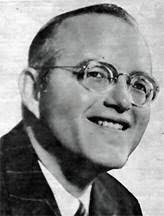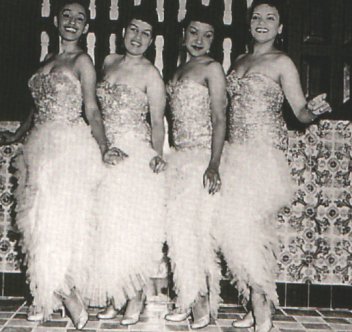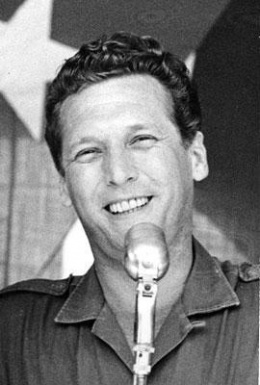
Havana ephemeris. August 16th.
1925. In an old house in Vedado de La Habana, where the Hubert de Blanck Theater is located today, the Constituent Congress of the first Communist Party of Cuba met.

Among the founders was Carlos Baliño, who had also participated together with José Martí, in 1892, in the creation of the Cuban Revolutionary Party.
The purpose of founding a workers' party in Cuba had begun to take shape at the end of the 19th century and continued to develop at the beginning of the following century.
The first Marxist-Leninist party in Cuba emerged at a time when several important events in the political life of the country had taken place in the Cuban territory.
A few years before, the so-called Protest of the 13 had taken place, as well as the Civic Renewal Movement, the Veterans and Patriots Movement, and in addition, communist groups had emerged and important workers' meetings had been held in Cienfuegos and Camagüey.
The General Secretary of the first Marxist-Leninist party in Cuba was José Miguel Pérez, who was born in the Canary Islands on December 8, 1896.
That party was the successor of the Cuban Revolutionary Party created by José Martí and predecessor of what is today the Communist Party of Cuba.
1927. Ramón Veloz is born in Havana.
He began his artistic life at the age of ten. He began interpreting tangos and lyrical genres, but later he became an interpreter par excellence of country music. He also ventured into other genres of Cuban popular music. He was characterized by singing with a soft and melodious voice.
The creations that he interpreted during the period prior to the triumph of the Revolution in 1959 reflected the situation suffered by the peasantry, that is, misery and abandonment, and in turn also expressed the desire for freedom of that sector of the Cuban population.
After 1959, his voice enriched and reflected the attitude and work of the men and women who lived in rural areas of the country.
He had a lot to do with the founding and development of the popular Cuban television program known as Palmas y Cañas, whose presentation still reflects his figure and his voice.
He passed away August 16, 1986.
1951. Eduardo René Chibás Rivas dies in Havana.

He became a prominent political figure particularly in the late 1940s in 20th century Cuba. He was the top leader of the Orthodox Cuban People's Party. He waged a tenacious fight against the corrupt elements of the Cuban government at that time and the so-called Authentic Cuban Revolutionary Party, of which President Carlos Prío and his predecessor Ramón Grau San Martín were members.
His constant denunciations of administrative corruption and his immoralities made him a public figure of great resonance.
From a program that he had on national radio he denounced the evils of the time and the government figures involved in acts of embezzlement and shady deals.
From that radio space he publicly accused the Minister of Education of the authentic government, Aureliano Sánchez Arango, of being an embezzler. He summoned him to prove it to him. Unable to present evidence of the crimes committed by that minister in a short period of time, Chibás decided to commit suicide, as a way of calling the people's attention to the veracity of his arguments. . At the end of his intervention in his program on August 5, 1951, he shot himself in the abdomen, which he described as his last blow. Eleven days later his death occurred. His burial was a great demonstration of pain on the part of his followers and the people in general.
His birth had taken place in Santiago de Cuba on August 26, 1907.
1952. The debut of the Las D'Aida Quartet takes place.

In Havana, in the CMQ Television program entitled Carrusel de las Sorpresas, directed by Amaury Pérez García, only a month after its creation, the debut of the quartet Las D'Aida took place, initially made up of Elena Burke, Moraima Secada , Omara and Haydée Portuondo, under the direction of the pianist Aida Diestro.
On that occasion they performed the songs Cosas del alma, by José Delgado and Mamey Colorao, by Pedro Jústiz.
This quartet began very soon to gain great popularity.
He characterized his work by singing in four voices with a treatment that followed the sonorities of Cuban and international music of the moment. The main harmonic support of the quartet was initially the piano performed by Aida Diestro and from 1970, that of an accompanying musical group that provided a new sonority and greater rhythmic support for the voices.
After years of success and after the decision of some of its members to become soloists, other singers were part of the quartet.
Maestro Luis Carbonell also contributed to the assembly of the voices of Las D'Aida. This group marked a milestone in Cuban popular music.
1979. The musical composer Juan Arrondo y Suárez dies in Havana.

Since he was 15 years old he has been linked to various son groups. He also performed as part of duos, trios and as a soloist. Already at that time he highlights his conditions as a composer. His first known musical creation is the one titled “Estela”, dedicated to the sister of a friend. Among his most popular compositions are those entitled Mi Juramento, Es Verdad, and Si en un Final.
On January 8, 1959, his bolero entitled “Como lo soñó Martí” was premiered in Cuba, dedicated to the Mothers of the Combatants of the Rebel Army, especially those who had lost one of his sons in the revolutionary war.
In the following years he continued to compose other works and at the same time provided his contribution to the emergence and development of the movement of amateur artists in Guanabacoa,
He was born May 14, 1914 in the town of Regla in Havana.
